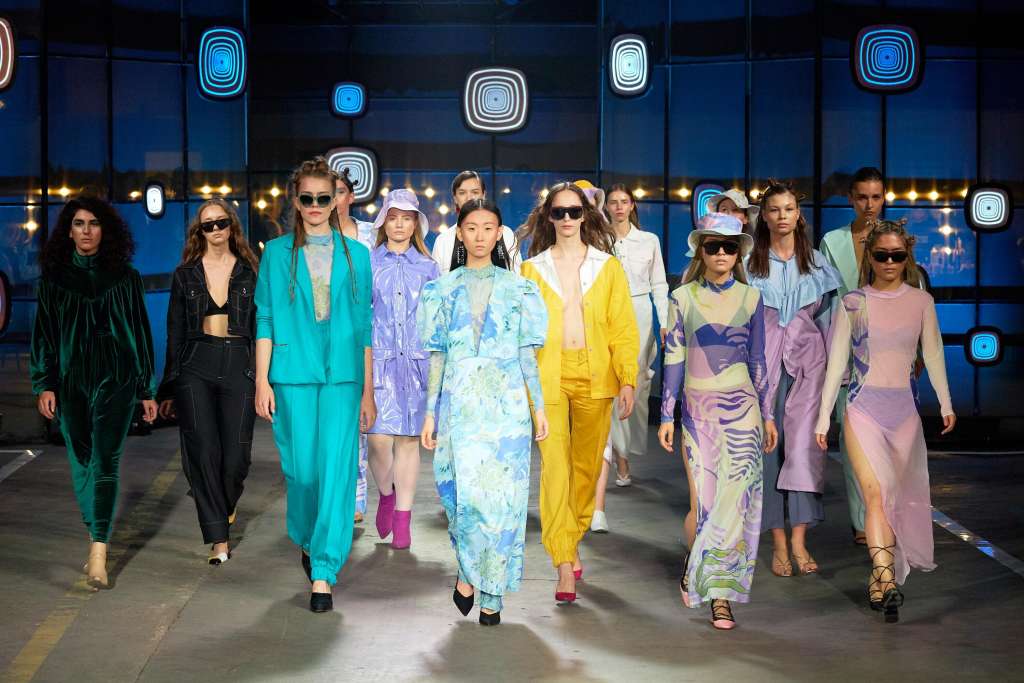Why Sustainable Event Management Is Essential To Success In Today’s Meetings And Conference Industry



Summary: Even while there are still environmental, social, and economic issues surrounding Fashion meetings and conferences, it is evident that it is changing as businesses and event organizers increasingly choose to be more intelligent and sustainable.
Sustainable event management has expanded rapidly. Every sustainably produced event has the potential to inspire and motivate others to act by exhibiting sustainability in action.
All types of events, including conferences and meetings, fashion weeks, trade fairs and expositions, sporting events, festivals, religious or cultural celebrations, and community and civic events, have begun to adopt sustainability practices.
What Constitutes a Sustainable Event?
A sustainable event is planned, put together, and carried out in a way that reduces potential negative effects and leaves a positive legacy for the host community and everyone involved. Sustainable events should grow out of the organization's demands that they take economic, social, and environmental impact into account.
Why Events, Meetings, and Conferences Should be Sustainable?
Unsustainable events cause several environmental, social, and economic problems. Global warming is influenced by factors like CO2 emissions (from air travel) and air pollution. Additionally, a lot of food leftovers are thrown away along with general trash such as plastic cutlery, straws, water bottles, coffee cups, and paper waste that is put in landfills. Outdoor events result in chemical and noise pollution, water and energy waste, and land degradation.
For instance, it is estimated that Brazil produced 2.72 million tonnes of CO2 while hosting the most expensive World Cup ever in 2014, considerably more than the 1.65 million tonnes South Africa produced for the 2010 World Cup. The fact that the CO2 released during Rio 2014 was equivalent to the CO2 emitted by 560,000 cars in a year is alarming.
Are Fashion Business Events/Meetings/Conferences Sustainable?

The most well-known Fashion Weeks in the world are Paris, New York, London, and Milan. At these events, buyers, the media, celebrities, top models, and designers proudly showcase their most recent collections.
An average fashion show lasts twenty minutes and requires six months of planning. Four weeks of international shows result in roughly 241,000 tonnes of CO2 emissions, which is enough to power New York Times Square for 58 years and illustrates Fashion Week's unfavorable environmental impact.
Besides yearly fashion runway shows, several other fashion events such as fundraisers, trade shows, fashion awards, and textile sourcing events attract a lot of retailers, wholesalers, artisans, importers, designers, and more. These events, to be sustainable, involve thoughtful material selection, strategic design, working conditions, consumer participation, and—most importantly—show production.
As luxury fashion brands hold more and more lavish presentations in the most extraordinary locales, the need for sustainable event management has risen. Fashion week regularly sees spectators/protestors crashing the runway at shows by luxury brands such as Louis Vuitton, Chanel, Dior, Victoria's Secret, and more.

Met Gala invites about 600 A-listers from fashion, sports, music, film, TV, and tech. Since each year's event has a different theme, it isn't normally a huge one for sustainable fashion. Although, a lot of celebrities have started donning upcycled and recycled couture to raise awareness.
Sustainability Efforts From the Fashion Industry
The luxury fashion industry's first-ever carbon-neutral fashion show was Gabriela Hearst's Spring Summer 2020 Womenswear Show. The eco-friendly company collaborated with EcoAct and Bureau Betak to make the event happen. It was done by monitoring and reporting on electricity use, travel, catering, and waste to assess the entire carbon footprint and compute the necessary offset quantities. To lessen the show's environmental impact, every necessary component of the production, design, and installation processes was reviewed.
Gucci declared its Spring Summer 2020 fashion show event would be carbon neutral. Gucci's runway presentations undergo a management system audit by an accredited third party to confirm that it complies with ISO 20121, an international standard for eco-friendly event planning.

There's no denying that fashion councils need to be involved with sustainability too. Early in 2019, Copenhagen Fashion Week declared its intention to change, grow, and build a strategic basis to advance sustainability across the fashion industry. The council set eighteen sustainability standards for the participating brands such as a ban on single-use plastic bottles, reducing carbon footprints by 50%, reaching a wider audience via digital solutions to minimize travel, zero waste generation via reusing & recycling, developing a code of conduct with suppliers and partners, and pushing sustainability. Brands that do not comply will not be considered for participation depending on how high or low their overall sustainability score is.
Sense and Sensibility
Including sustainability in the overall business strategy will assist fashion businesses to set goals, monitoring their progress, and hosting environmentally friendly events. The effort to make events, meetings and conferences sustainable could be low-hanging fruit easily achievable with sense and sensibility.
On the bright side, be it circularity, transparency in the supply chain, responsible sourcing, waste management, or sustainable venue design, more and more companies have begun to integrate different aspects of sustainable event management.
Key Takeaways

- The fashion industry should not shy away from setting sustainable goals that must include hosting environment-friendly events
- Sustainability efforts can be as simple as banning plastic bottles, using digital invites, organic food & supplies, and reusable & recyclable merchandise.
Fashinza provides a platform for fashion companies to communicate and implement their commitments toward socially, economically, and environmentally sustainable event management.
Get in touch with Fashinza to get a demo.



















